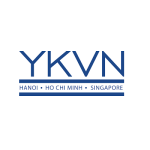The past decade has seen a palpable rise in demand for businesses to be transparent about their environmental, social and governance (ESG) performance, including their contributions to local economies. In Vietnam, the framework with regard to environmental, social and other sustainable development issues is fairly new, especially for businesses.
Access to information about environmental and social standards and sustainable development best practices was once limited due to lack of guidance and practice in relation to ESG activities. Crucial ESG information on investee companies such as community development, waste management, efficient use of water, employee compensation and benefits, labour force diversity and the existence of independent committees was lacking, even for public companies.
A key event pushing greater scrutiny of environmental issues was the 2016 Vietnam marine life disaster, where toxic discharges from a steel plant in central Vietnam caused many fish deaths in four nearby coastal provinces. The situation has since been improving.
Vietnam has taken some important initial steps to catch up with the global ESG trend. The 13th National Congress of the Communist Party of Vietnam (CPV) from January 25 2021 to February 1 2021 decided the development plan for 2021-2030. This aims to ensure social and human security and manage resources efficiently and sustainably, among other things. Setting the protection of the living environment and people’s health as the top goals, the CPV also resolved to eliminate investment projects that cause environmental pollution and to aim to protect biodiversity and ecosystems as well as build a green and environmentally friendly economy.
Those policy objectives are in line with Vietnam’s existing international commitments. For example, in 2015, all members of the United Nations, including Vietnam, adopted the 17 Sustainable Development Goals (SDGs), including no poverty, zero hunger, and affordable and clean energy, as part of the 2030 Agenda for Sustainable Development, which sets out a 15-year plan to achieve these 17 goals. In 2018, Vietnam published its voluntary national review on implementation, which concludes that a certain number of the SDGs, such as a substantial reduction in the national multi-dimensional poverty rate, have been achieved.
Vietnam has partnered with other nations and economic blocs to motivate Vietnamese companies to pay more attention to ESG issues. In 2019, Vietnam signed the European Union-Vietnam Free Trade Agreement, which sets out the signatories’ “commitment to enhance the contribution of trade and investment to the goal of sustainable development in its economic, social and environmental dimensions” including agreement “to promote corporate social responsibility”.
In addition, development finance institutions such as the International Finance Corporation (IFC) and Asian Development Bank have been proactive in requiring investee companies to strive for a higher level of corporate social responsibility (including ESG matters), such as an IFC-led investment in bonds issued by Ho Chi Minh City Development Joint Stock Commercial Bank in early 2022 (which will be discussed below).
Vietnam’s ESG legislation at a glance
Vietnamese law has undergone significant changes that have increased the obligations of the state and businesses regarding ESG practice. In line with the state’s goal to enhance sustainable development of businesses in Vietnam, the government has directed the relevant ministries and agencies to take action on ESG issues.
The government also resolved that sustainable development is a requirement throughout the development process of the nation, and outlined sustainable development targets such as 90% of students completing basic secondary education by 2030. Recent legislative developments include:
On environmental protection, the Prime Minister issued Decision No. 1658/QD-TTg dated October 1 2021, approving the National Strategy on Green Growth for the 2021–2030 period, with a vision to 2050. This sets out general objectives of the state to accomplish green growth and transition Vietnam towards a carbon-neutral economy. The Ministry of Industry and Trade is assigned the task of developing specific incentive mechanisms for enterprises that provide green products and services. Eight areas of focus for implementing Vietnam’s COP26 commitments include (i) converting from fossil energy to green and clean energy sources; (ii) reducing greenhouse gas emissions in all sectors and fields; (iii) reducing methane emissions, especially in agricultural production and waste treatment; (iv) encouraging research, development and use of electric cars; (v) sustainable management and use of existing forests, while promoting new afforestation to absorb and store carbon; (vi) research, production, use of building materials and urban development in accordance with green and sustainable development; (vii) promoting and renewing communication so that the entire people and business community are unified in awareness and support for the government in implementing commitments at COP26; and (viii) promoting digital transformation to respond to climate change.
To achieve ESG policy objectives in foreign direct investment management, the Law on Investment No. 61/2020/QH14 dated June 17 2020 has a new mechanism that disallows extension of investment projects that utilise obsolete technologies that may pose a danger to the environment. Accordingly, the investment term of a project for which obsolete, environment-threatening or resource-intensive technology is utilised should not be extended. This creates an impetus for investors continually to improve their technology with respect to the environment and resources if they wish to remain in the business.
Regulation of corporate governance and disclosure in public and listed companies is another legislative priority. The Ministry of Finance issued Circular No. 96/2020/TT-BTC dated November 16 2020 providing guidelines on disclosure of information on the securities market, which sets out certain ESG reporting requirements for public and listed companies in Vietnam. In particular, Vietnamese public and listed companies are required to disclose in their annual reports an ESG report (including greenhouse gas emissions, energy consumption, water consumption, compliance with the law on environmental protection, policies concerning employees, responsibility for local community, investments and other community development activities), an assessment report related to environmental and social responsibilities of the relevant company prepared by the Board of Directors, and corporate objectives of the relevant company with regard to corporate environment, society and community sustainability.
ESG policy developments
In parallel with developments in legislation, numerous state bodies, especially the State Securities Commission of Vietnam (SSC), as well as non-governmental organisations in Vietnam, have worked gradually to introduce guidance and policies to raise awareness and enhance the ESG practice of Vietnamese businesses.
Before 2013, the significant lack of ESG reporting and practice in Vietnam raised substantial concerns that Vietnamese companies would not be able to attract investors with high environmental and social standards. In 2013, realising the urgent need for ESG reporting-related guidelines, the SSC collaborated with the IFC to produce the Handbook on Sustainability Reporting – a guide primarily aimed at public and listed companies in Vietnam to help them understand, manage and disclose their environmental and social performance. The Handbook was seen as one of the first steps towards meeting SDGs for public and listed companies in Vietnam . It provides Vietnamese companies with reporting processes and key performance indicators for sustainability reports and also introduces them to global standards in ESG reporting.
Launch of VNSI
The SSC, together with the Ho Chi Minh Stock Exchange (HOSE) and the German cooperation agency GIZ, launched the Sustainable Development Index (VNSI) on HOSE in July 2017. The VNSI includes the top 20 companies with the highest sustainability scores listed on HOSE. These top 20 companies are selected from the VN100 index basket (which includes the 100 largest listed companies) according to the three ESG aspects.
|
|
“Vietnamese law has undergone significant changes that have increased the obligations of the state and businesses regarding ESG practice” |
|
|
VNSI focuses on evaluating a company’s policies, commitments, relationships with employees and partners, compliance with law, emissions, and corporate governance aspects such as shareholders’ rights, treatment of shareholders, relevant parties’ responsibility, information transparency and the role and responsibility of the Board.
In 2019, the SSC developed the Vietnam Corporate Governance Code of Best Practices. The Code is not mandatory. However, the SSC recommends that public companies comply with the practices set out in it and disclose the detailed level and roadmap of compliance in their annual report. The annual report should also include key non-financial information such as the company’s significant environmental and social impact against benchmarks of the Global Reporting Initiative or the Sustainable Assurance Standards Board.
With regard to gender equality, Vietnam continues to have a high participation of women in business. Almost half of all small businesses in Vietnam are owned by women and there appears to be a surge in the number of women participating in tech start-ups. However, further progress is required, and the signs are that the market appears to be heading in the right direction.
ESG-focused investments in Vietnam
The continuous improvements in ESG legislation, policies and corporate governance have been attracting investment into Vietnamese companies. For example, Vietnamese investment funds such as Tundra and AFC Vietnam Fund are taking into account ESG criteria when investing in local companies. Vietnam Holding and Dragon Capital have adopted the United Nation’s Principles for Responsible Investment, dedicated to promoting environmental and social responsibility among the world’s investors, and apply these principles to all of their investee companies. Vietnam Holding invested in the Vietnam Dairy Products Joint Stock Company and tech group FPT Corporation due to the companies’ high quality of corporate governance and sustainable development policy; both companies have consistently featured in the VNSI since 2018.
At the COP26, Vietnam pledged to phase out coal and stop building more thermal power plants. The Minister of Industry and Trade has stated that Vietnam will not develop new thermal power plants after 2030; will minimise new plants until 2045; and will gradually eliminate factories that have been operating for many years with outdated technology.
Green bonds
Green bonds’ have become increasingly popular among Vietnamese issuers. As of 2020, Vietnamese companies have issued four green debt issues with an aggregate value of nearly $284 million. Most of the proceeds from green bond issues (57%) are used for renewable energy development – the main industry of Vietnam’s interest, along with the waste treatment and agriculture sector.
In 2021, BIM Land Real Estate (BIM), a member of BIM Corporation, successfully completed the issuance of $200 million of green bonds that have subsequently been listed on the Singapore Exchange, with the proceeds being used for its Excellence in Design for Greater Excellence-certified real estate projects and those of green and environmentally friendly nature. BIM has published its inaugural Green Finance Framework, with a second party opinion issued by Norwegian classification agency DNV GL. In the same year, Symbiotics – a leading market access platform for impact investing, arranged $6.25 million and VND234 billion (approximately $10.1 million) of green bonds for EVNFinance (a Vietnamese listed non-bank financial institution regulated by the State Bank of Vietnam). The proceeds will be used to fund solely green projects such as renewable energy (commercial and industrial solar, roof-top solar) and biomass energy.
In 2022, IFC, LeapFrog Investments and Deutsche Investitions- und Entwicklungsgesellschaft joined forces to invest a total amount of $165 million in convertible tier 2 bonds issued by Ho Chi Minh City Development Joint Stock Commercial Bank (HDBank). The bond proceeds will concurrently help increase lending to retail and small and medium enterprises (SMEs), including women-owned or women-led ones as HDBank aims to expand its retail and SME portfolio, reaching more rural populations and informal household businesses as well as women entrepreneurs.
It is reported that the bond raising will also help HDBank enhance its environmental and social risk management capacity by introducing IFC performance standards while improving the bank’s corporate governance policies in line with international best practices, including a commitment not to fund coal-related projects.
ESG outlook in Vietnam
The biggest difference between now and a few years ago is that ESG was once a mere cost item in the perception of local businesses but now they have seen the fruits of their investments. The ESG-focused investments highlighted in this article are just a few examples that demonstrate that ESG parameters have gradually become one of the decisive factors in making investments for many investors around the globe.
Many Vietnamese listed companies have made a strong commitment to ESG and are focusing on the transition to using renewable energy. The popularity of ESG-focused investment will raise ESG awareness among local businesses and Vietnamese companies will be incentivised to move towards more sustainable development and growth. It should come as no surprise that M&A will be used to rebalance a portfolio. Companies with strong sustainable values and robust ESG initiatives will have access to better capital.
Click here to read all the chapters from IFLR ESG Asia Report 2022

Truong Nhat Quang
Managing partner
YKVN
T: +84 28 3822 3155
Truong Nhat Quang is the managing partner of YKVN. He heads a well-recognised, top tier corporate practice focused on banking, M&A, private equity, and capital markets transactions.
Quang has successfully handled landmark deals in Vietnam, regularly advising on complex M&A transactions and private equity investments as well as representing international banks, multinational investors, government agencies, and multilateral organisations on nation-shaping industrial transactions and projects. His clients include top Vietnamese banks and corporates, global investment banks, banks active in Vietnam and global private equity funds.
Quang has authored the treaties on Vietnamese contract law and corporate law, while also authoring guidance on skills for transactional business lawyers. He is a graduate of Hanoi University of Law.

Nguyen Van Hai
Partner
YKVN
T: +84 28 3822 3155
Hai Nguyen is a partner at YKVN. He has over 10 years of experience in the practice of corporate, energy and capital markets.
Hai has in-depth knowledge of the Vietnamese capital markets and energy sectors and the general legal landscape of Vietnam. His current main areas of practice are capital markets and finance transactions and other corporate transactional and advisory matters.
Hai Nguyen has an LLM from the University of the West of England and a bachelor’s degree in international relations and public international law from the Diplomatic Academy of Vietnam.

Duong Nguyen
Senior associate
YKVN
T: +84 28 3822 3155
Duong Nguyen is a registered foreign lawyer practicing in Vietnam. He focuses on corporate, M&A and dispute resolution matters.
Duong regularly advises clients, including Fortune 500 companies, Vietnamese publicly listed companies, and private equity funds, in onshore and offshore transactions.
Duong holds a bachelor’s degree in economics and a JD from Northwestern University.

Dinh Hai Long
Trainee lawyer
YKVN
T: +84 28 3822 3155
Dinh Hai Long is a trainee lawyer focusing on corporate and M&A matters.





